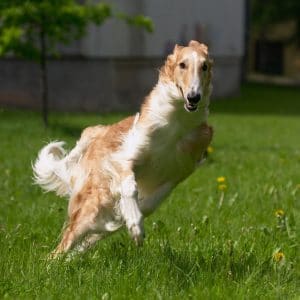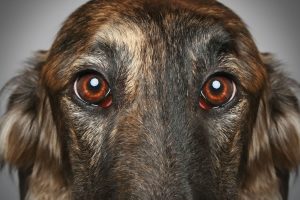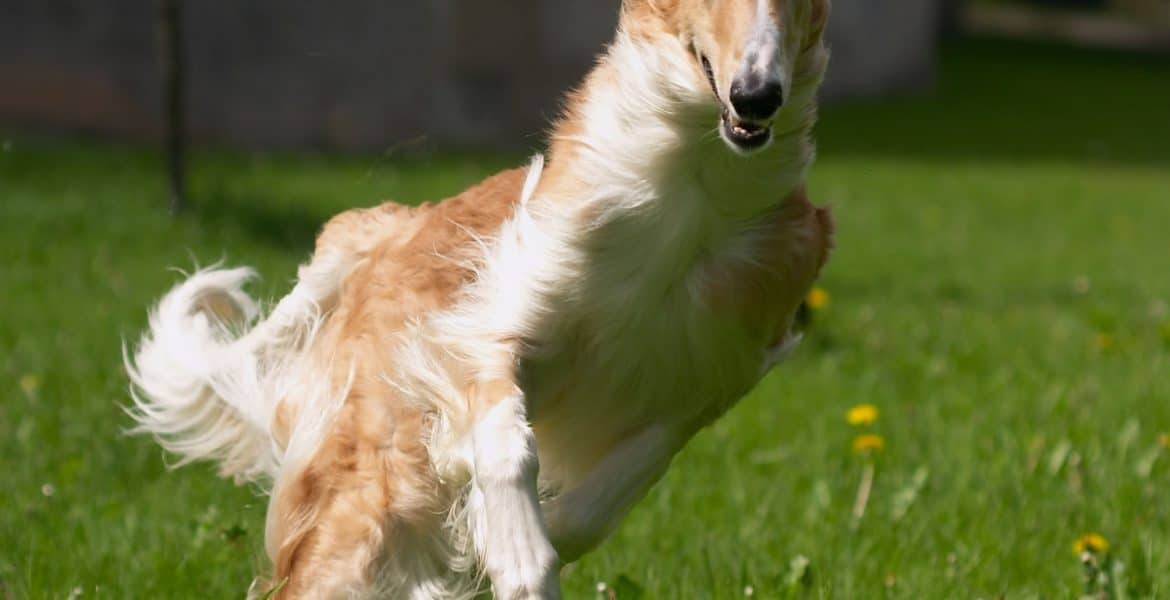 The Borzoi originated from Russia where they were bred to hunt wolves for the Russian aristocrats. As a favourite of the Tsar family, the breed was not widely traded and were only given as gifts from the Tsar family. The most popular Borzoi breeder was Grand Duke Nicholas Nikolaevich of Russia who bred numerous Borzoi in his private estate.
The Borzoi originated from Russia where they were bred to hunt wolves for the Russian aristocrats. As a favourite of the Tsar family, the breed was not widely traded and were only given as gifts from the Tsar family. The most popular Borzoi breeder was Grand Duke Nicholas Nikolaevich of Russia who bred numerous Borzoi in his private estate.
Coming from Central Asia, the Borzoi was crossbred with the Russian Laika in order to ensure resistance against cold weather. In 1917 the civil revolution broke in Russia and the Tsar families were threatened. A lot of the dogs were murdered by the Revolutionalists, which forced some noblemen to shoot their own dogs themselves rather than let them fall into the militants’ hands. Luckily the breed survived together with the borzaya variants in the countryside.
Before 1936, the Americans recognized the breed as the Russian Wolfhounds. They changed it to Borzoi after, borrowing Russian term ‘borzii’, which means fast or swift. The name suits the breed’s swift characteristic as a hunter hound.
The breed is easily characterised by his large but lithe body, narrow skull and muzzle, and long hair. The Borzoi is a member of the sighthound family and has a similar look with the Greyhound. The nose is large and black; while the eyes are dark in colour and a little bit slanted. The back line of the body is arched slightly upward with his tail set low. This hound has long, silky coat that can be flat, wavy or curly. The coat can come in any colour or combination of colours, but the most common colours are white, gold, red, grey, and black rowan. The Borzoi has soft undercoat that thickens when it is cold and sheds when it is hot.
The Borzoi’s coat needs regular brushing to keep it silky and shiny. Fortunately the dog has a cat-like characteristic where he likes to keep himself clean all the time. Hair between his toes should be clipped regularly so that he could stay comfortable.
 The breed is amazingly quiet and therefore makes for a good pet to keep in an apartment. Frequent long walks and exercise are needed to keep this hunter type of breed active and happy. They are usually good with children and other animals as long as socialized at his early age. However, this graceful dog may not be an ideal companion to young children who like playing rough games. He can get along with other animals in the family too, but this does not apply to smaller outsider animals, as his hunting instinct will take over and he will run fast to catch them.
The breed is amazingly quiet and therefore makes for a good pet to keep in an apartment. Frequent long walks and exercise are needed to keep this hunter type of breed active and happy. They are usually good with children and other animals as long as socialized at his early age. However, this graceful dog may not be an ideal companion to young children who like playing rough games. He can get along with other animals in the family too, but this does not apply to smaller outsider animals, as his hunting instinct will take over and he will run fast to catch them.
The Borzoi is prone to bloat/torsion.


